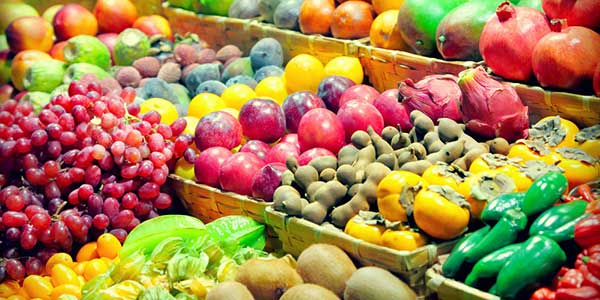
Although cancer was previously thought to surface primarily on genetic and environmental factors, poor lifestyle choices and habits are starting to take notice. In fact, cancers of the prostate, breast, colon, stomach, esophagus, and liver may be strongly related to dietary factors. So when it comes to diet, what is the best food to fight cancer?
Foods that Help Fight Cancer
First and foremost, there really is not one specific food that fights cancer, but rather the cohesion of various micronutrients. Interestingly, in numerous laboratory studies, several minerals, vitamins, and phytochemicals (chemicals found in plants), demonstrated compelling anti-cancer properties. However, evidence suggests the synergetic effects of the overall diet plays the largest role in cancer protection. Ultimately, though, the best food that helps fight cancer is primarily plant-based sources. In fact, the American Institute for Cancer Research (AICR) recommends filling at least 2/3 of the plate with plant-based sources. The emphasis and push of plant sources is primarily based on their powerful antioxidant properties as well as their fiber content, further comprising of whole grains and legumes, fruits and veggies:
• Whole Grains and Legumes: brown rice, oats, corn, wheat, barley, bulgur, millet, sorghum, farro, flaxseeds, and various beans, including black, kidney, red, and soy beans
• Fruits: apples, cherries, cranberries, oranges and other citrus fruits, grapefruits, grapes, papaya, and various berries, including blueberries, strawberries, raspberries, blackberries, and acai berries
• Veggies: broccoli, brussels sprouts, cauliflower, winter squash, tomatoes, garlic, onion, and dark, green leafy vegetables including kale and spinach
Cancer Prevention Tips
Along with supplying the diet with nutrient-rich foods, the American Cancer Society also encourages individuals to:
• Adopt a Physically Active Lifestyle
According to the National Cancer Institute (NCI), higher levels of physical activity have shown to lower the risk of cancer. The 2008 Physical Activity Guidelines for Americans, encourages adults to engage in at least at least 150 minutes of moderate-intensity aerobic physical activity, 75 minutes of vigorous-intensity aerobic physical activity each week. Additionally, new confirmative research suggests consistent exercise is more effective than medications in curing fatigue caused by cancer.
• Maintain a Healthful Weight Throughout Life
A healthy weight is encouraged to lessen the risk of numerous chronic diseases, cancer included. And according to data conducted by the AICR, excess body fat has shown to increase the risk of numerous cancers. Adopting both a nutritious diet and an active lifestyle can assist in weight loss and maintenance.
• If You Drink Alcoholic Beverages, Limit Consumption
Although alcohol has been suggested to fit into a balanced diet (two drinks and one drink for men and women each day, respectively), high intake has shown to lead to various cancer types, including stomach cancer. And while a glass of red wine may contribute to a number of health benefits, new startling research has linked white wine with skin cancer.
Despite the measures taken to fight against cancer, it is extremely important to schedule annual physical exams and checkups. Detecting cancer in its earliest stages can help prevent and delay more severe, harmful outcomes. For more information regarding cancer detection, signs and symptoms, click here.







